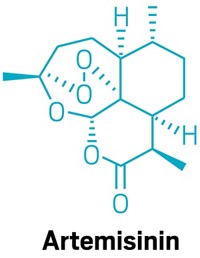Advertisement
Grab your lab coat. Let's get started
Welcome!
Welcome!
Create an account below to get 6 C&EN articles per month, receive newsletters and more - all free.
It seems this is your first time logging in online. Please enter the following information to continue.
As an ACS member you automatically get access to this site. All we need is few more details to create your reading experience.
Not you? Sign in with a different account.
Not you? Sign in with a different account.
ERROR 1
ERROR 1
ERROR 2
ERROR 2
ERROR 2
ERROR 2
ERROR 2
Password and Confirm password must match.
If you have an ACS member number, please enter it here so we can link this account to your membership. (optional)
ERROR 2
ACS values your privacy. By submitting your information, you are gaining access to C&EN and subscribing to our weekly newsletter. We use the information you provide to make your reading experience better, and we will never sell your data to third party members.
Agriculture
Provivi gets $10 million from Gates Foundation for insect control
Start-up’s affordable pheromones will be used to help farmers in developing countries
by Melody M. Bomgardner
March 3, 2021
| A version of this story appeared in
Volume 99, Issue 8

The crop protection start-up Provivi has received a $10 million investment from the Bill & Melinda Gates Foundation to produce pheromone-based insect control technology for smallholder farmers in developing countries.
The funding comes on top of the company’s recent third round of private investment totaling more than $130 million. Provivi was founded in 2013 by Caltech chemical engineering professor Frances H. Arnold and two former graduate students. Arnold went on to win the 2018 Nobel Prize in Chemistry for her work using directed evolution to produce useful enzymes.
At Provivi, such enzymes are used to cost-effectively produce insect pheromones. When released into the air, the biochemicals draw pest insects away from crops and prevent them from finding each other to mate. Orchardists and growers of other high-value crops commonly deploy pheromones, but they have traditionally been too expensive for use on row crops.
Funding from the Gates Foundation will support using Provivi’s products to fight crop loss from rice stem borer and corn fall armyworm in Kenya, Bangladesh, and India.
The striped stem borer is one of the most damaging insect pests in Asia. It can devastate a rice crop, according to the International Rice Research Institute.
Fall armyworm, a more recent arrival, first spread to Africa from the Americas in 2016. By 2020 it was in over 70 countries. The United Nations Food and Agriculture Organization estimates that up to 80 million metric tons of corn per year worth $18 billion is at risk of being devoured.



Join the conversation
Contact the reporter
Submit a Letter to the Editor for publication
Engage with us on Twitter